I was pleased to talk about the artist Stanley Cursiter (1887-1976) for BBC Radio Orkney the other day, in an interview with Cameron Stout.
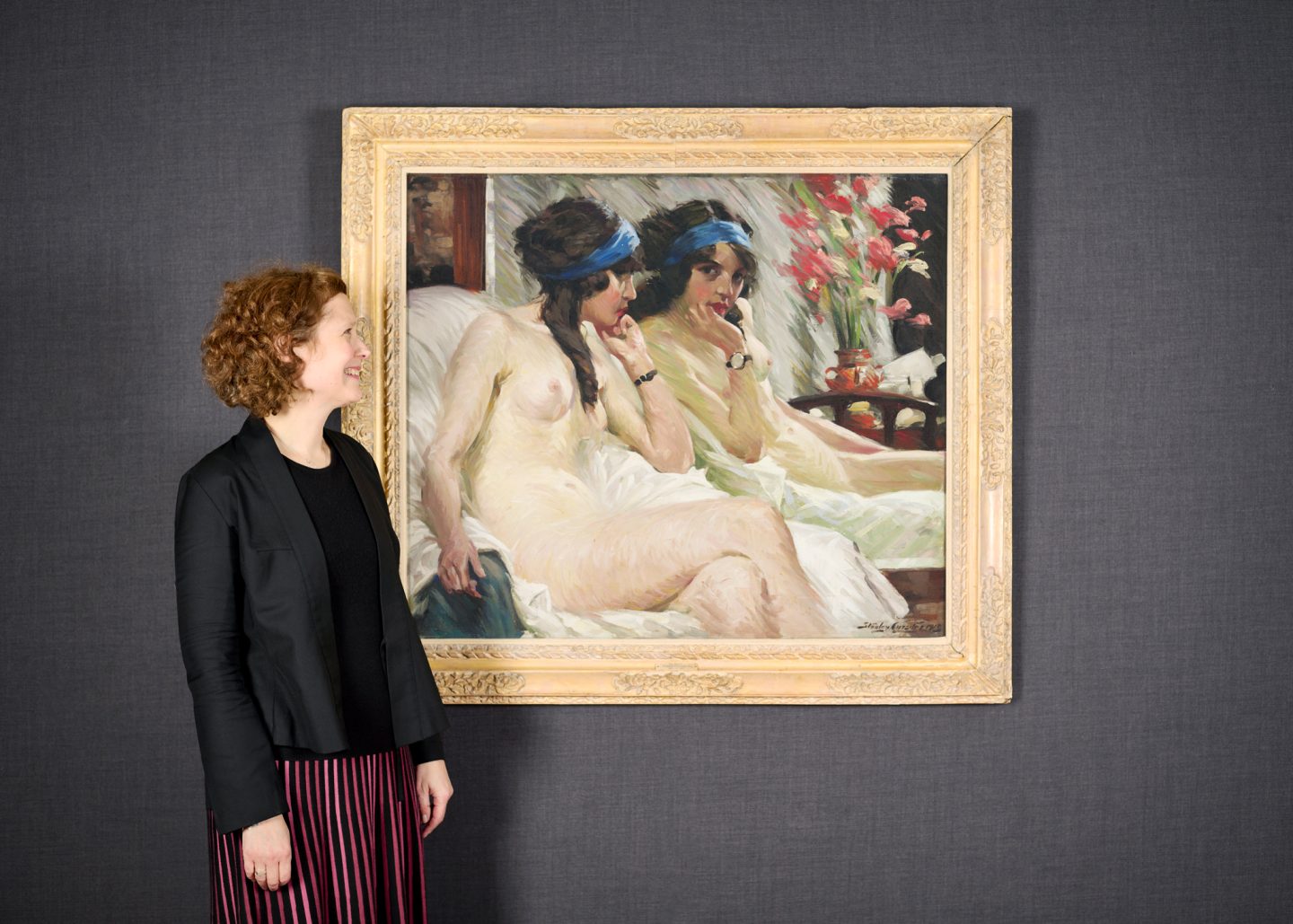
Photo: Mariam Sorour
Stanley Cursiter
Cursiter was born in Kirkwall, Orkney in 1887 and trained at Edinburgh School of Art (a predecessor of Edinburgh College of Art) and at the Royal College of Art in London. He went on to become as celebrated as a curator and art historian as an artist. In 1930 he was appointed Director of the National Galleries of Scotland; seven years later he was elected a full Member of the Royal Scottish Academy. Cursiter was a leading champion of modern and contemporary art and it is in no small part due to him that the Scottish National Gallery of Modern Art was established in 1960. He retired in 1948 in order to dedicate himself to his own practice and in that year was appointed HM The King’s Painter and Limner for Scotland. He died in Stromness, Orkney in 1976.
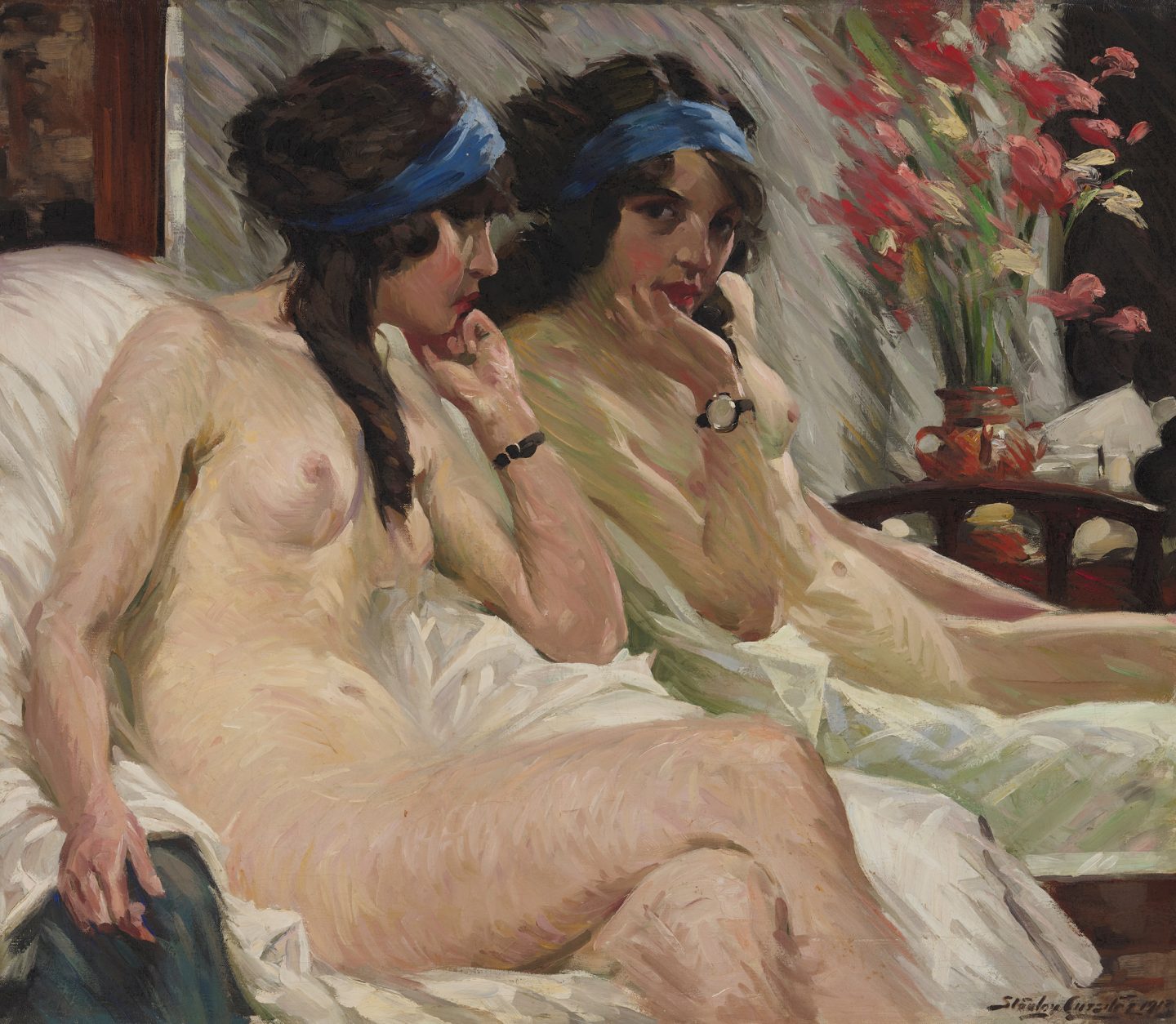
oil on canvas, 89 x 101.5cm
Private Collection (c) Artist’s Estate
The Society of Scottish Artists’ Annual Exhibition of 1913
Cameron asked me to talk about Stanley Cursiter for BBC Radio Orkney focussing on the painting The Mirror of 1913. It is a major work from the period during which Cursiter emerged as a leading Scottish artist of his generation. Elected to the Society of Scottish Artists in 1906, it was a highlight of their Annual Exhibition, held in the Royal Scottish Academy Galleries in 1913-14. This was a landmark exhibition of international modern and contemporary art in Scotland, including – thanks to loans negotiated by Cursiter – works by the Italian Futurists Luigi Russolo and Gino Severini. The Mirror was also shown in the company of Post-Impressionists including Paul Cézanne, Paul Gauguin, Paul Sérusier and Vincent Van Gogh, as well as Henri Matisse and Pablo Picasso, as the society’s Hanging Committee successfully brought examples of the best in modern European art to an Edinburgh audience.
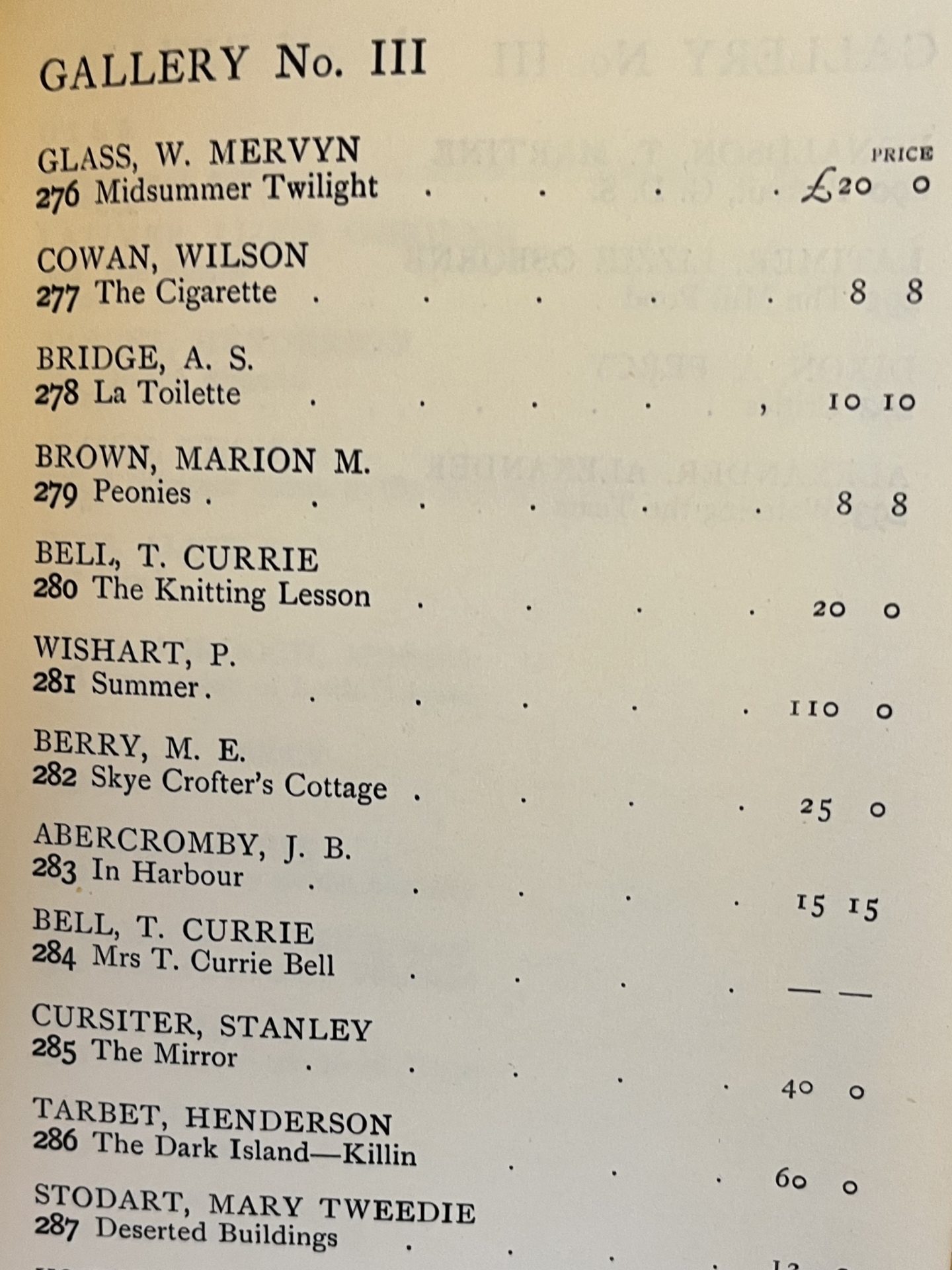
The Mirror of 1913 by Stanley Cursiter
Of the 461 exhibits, The Mirror was singled out for praise in several reviews, including that of The Studio. Its anonymous critic declared ‘Mr Stanley Cursiter’s The Mirror…was one of the most outstanding works of the collection, particularly in the modelling of the head and the upper part of the figure.’ (‘Studio-Talk: Edinburgh’, The Studio, vo.61, 1914, p.66).
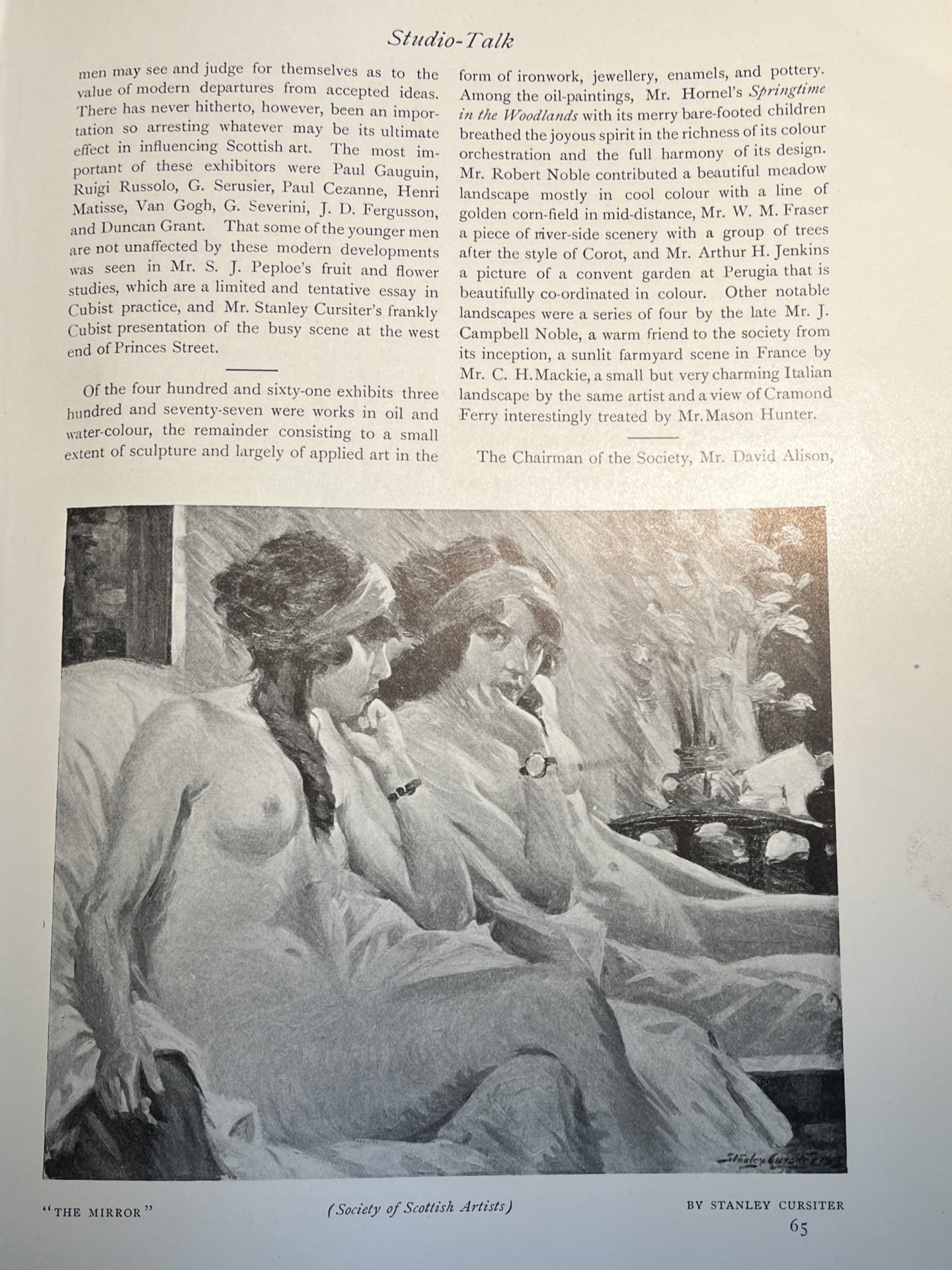
Bravura Painting Technique
Painted on an ambitious scale, The Mirror is a tour de force full-length female nude, combined with reflection and an accomplished still-life passage. Cursiter’s sitter addresses the viewer via the titular mirror, whilst the double views of her face and watch provide focal points in the composition. A feathery technique can be compared to that of the Scottish Colourist F. C. B. Cadell’s work of the period, with careful attention played to the rounding of form and associated shadows.
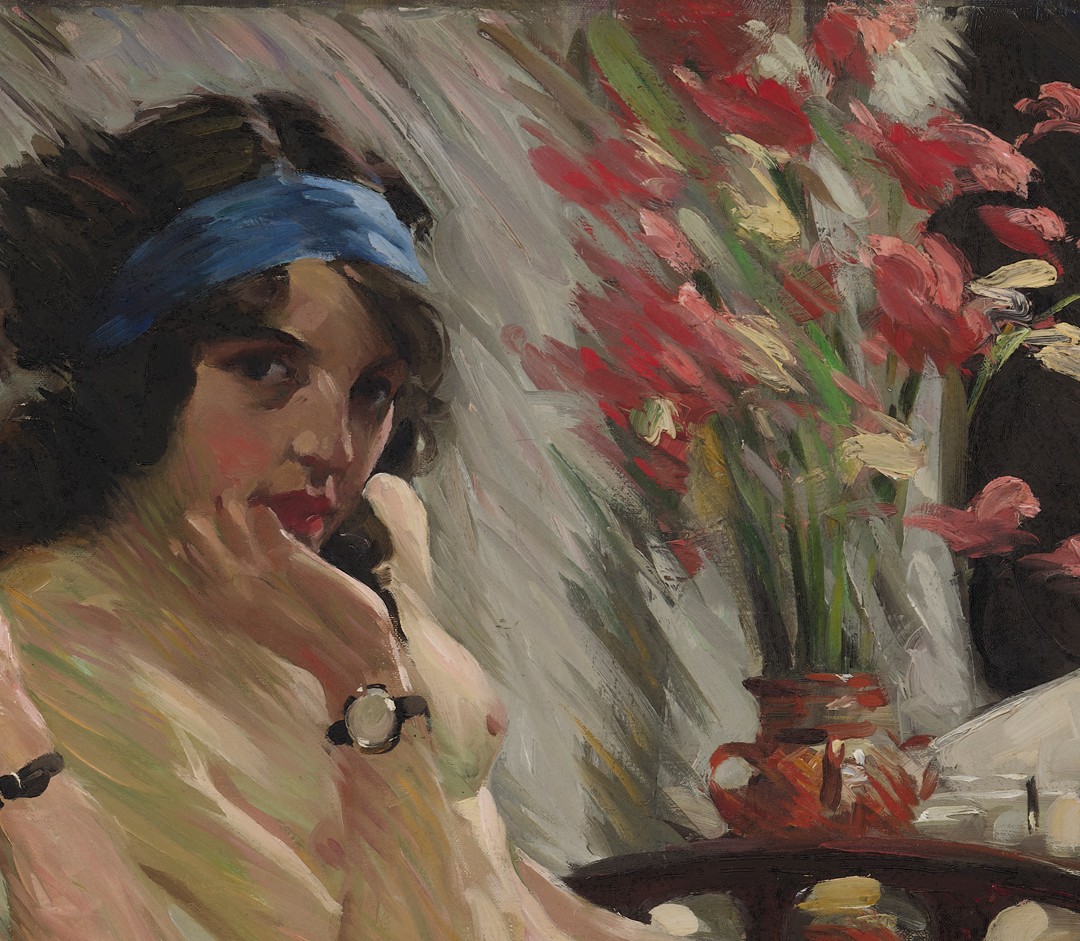
Where to Listen, Where to See
You can listen to me talking about Stanley Cursiter for BBC Radio Orkney at this link, which is available until 17 December 2025. You can find out where to see works by Cursiter in UK public collections on the Art UK website here. For more about Cursiter on my website, please read this article and this feature.